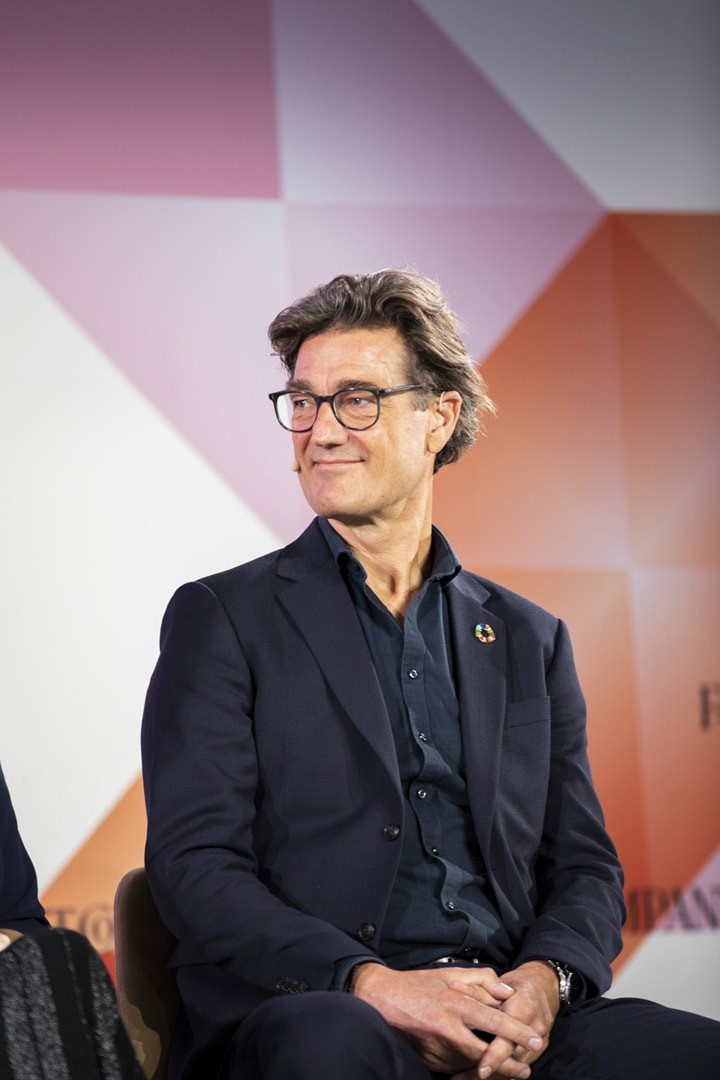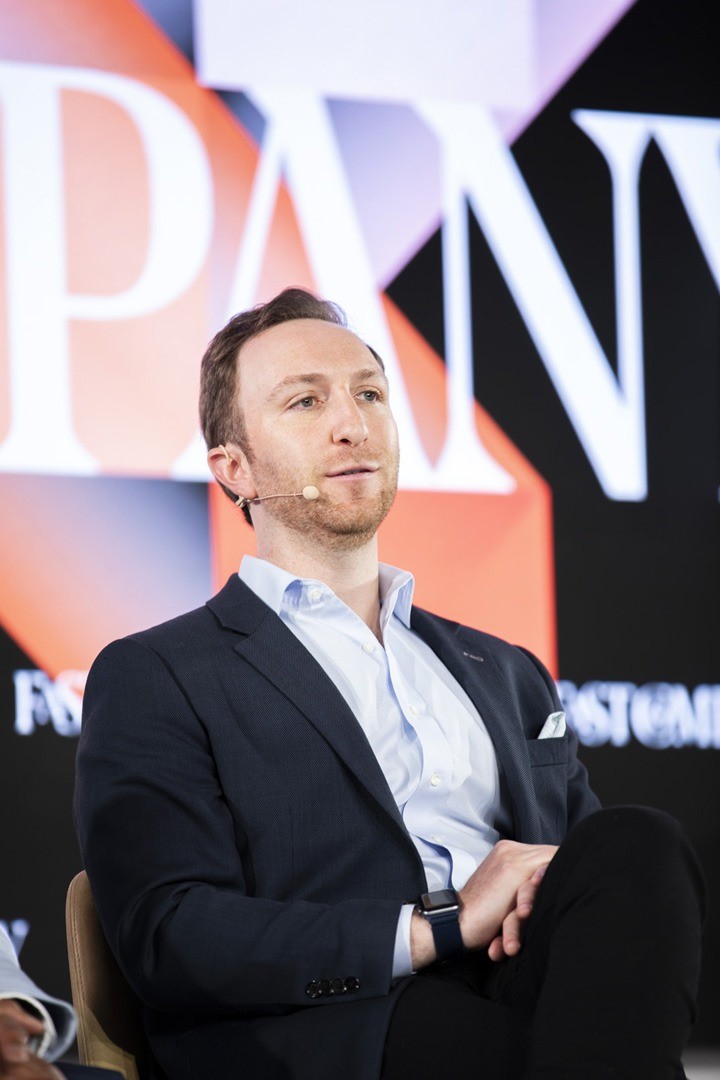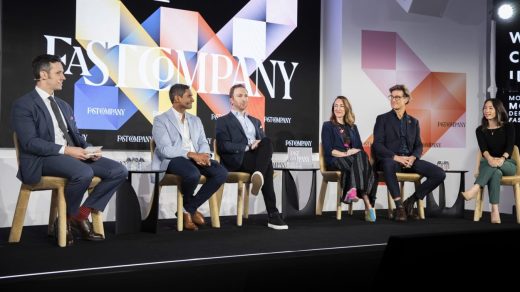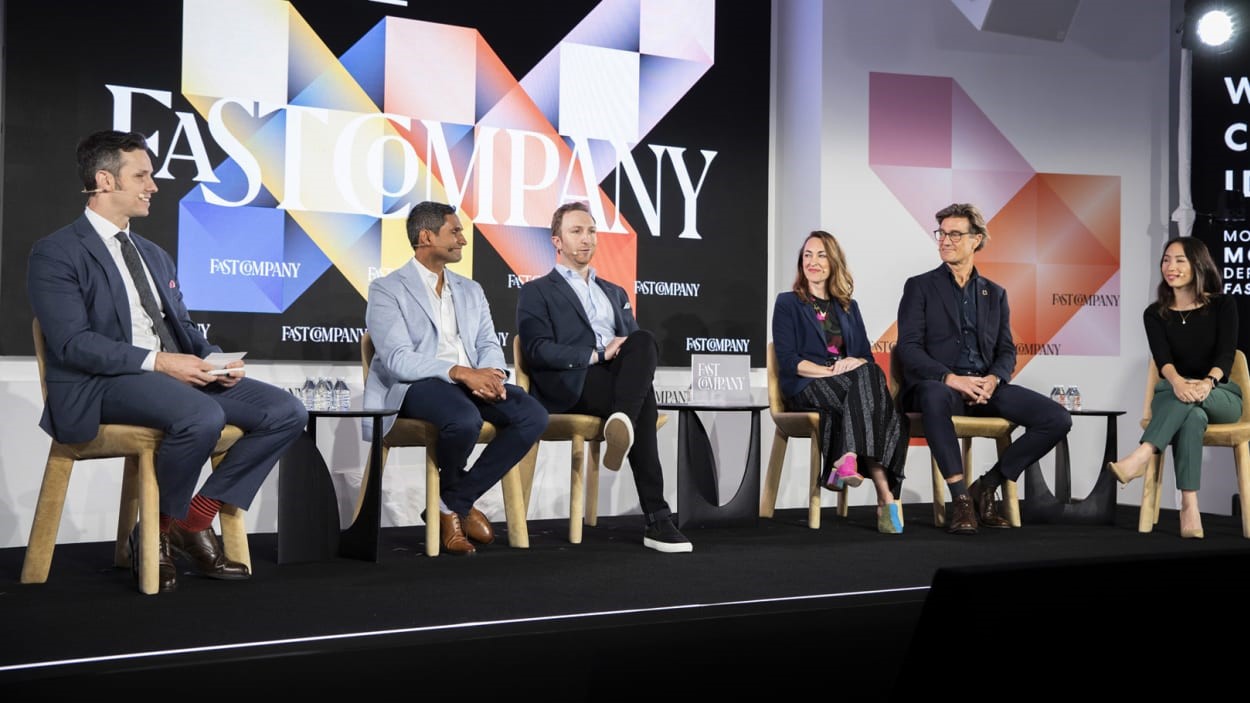Here’s what you need to actually scale up your world changing idea
If you buy one of Pandora’s lab-grown diamonds, you’ll have a gemstone that’s identical to one mined out of the ground in looks and composition, but with one big difference: It would have a carbon footprint around 95% lower than its mined counterpart.
Were all diamonds to have such a low carbon footprint, it would save more than 6 million tons of carbon dioxide emissions annually, equivalent to replacing all of New York City’s cars with electric vehicles.

But when it comes to getting customers to choose a lab-grown diamond, the sustainability component can’t be the entire story, according to Mads Twomey-Madsen, SVP of global sustainability at Pandora. To change people’s perceptions—and to speed up the impact of such climate innovations—“it’s all about storytelling,” he said at the Fast Company Innovation Festival last month. “Things tend to move faster when it becomes something that is also connected to desire in other ways.”
Luckily, lab-grown diamonds also have the benefit of being cheaper than mined ones. This allows Pandora to create a new story around the gemstone. “We would like to show consumers that diamonds can be something you can use for other occasions than what we usually think about when we look at diamonds,” Twomey-Madsen said, like engagement rings. It’s this, plus the strong sustainability angle, that can help the innovation scale up.
And that isn’t only true for diamonds, but for any climate innovation. Pandora’s lab-grown diamonds were a winner of Fast Company’s 2023 World Changing Ideas Awards, an annual program that honors products, policies, companies, and designs that seek to improve our planet and our society. Other 2023 winners were Dell’s Solar Community Hubs; Scale AI’s tool to automatically detect building damage in Ukraine; Epic Cleantec, which creates and installs recycling systems to reuse up to 95% of a building’s wastewater; and Lithos Carbon, a startup that uses volcanic rock dust to transform farmland into carbon capture sites. All were represented by executives on the Fast Company Innovation Festival panel.

“For any sustainability technology, it needs to provide a benefit to the customer,” said fellow panelist Aaron Tartakovsky, cofounder and CEO of Epic Cleantec.
Just like in Pandora’s case, Tartakovsky says cost is crucial. “Every large real estate developer [that we talk to], of course they want to do right by the environment. They want to save water. But they’re not going to do it if it’s not going to save them money, or if it’s going to be more expensive than the alternative,” he said. “You need to hit on both fronts.”

This gets to the biggest issue facing climate solutions: how to scale efficiently. Also onstage was Mary Yap, cofounder and CEO of Lithos Carbon, who spoke about how inspiring it was to hear from her fellow panelists about their innovations.
But though these innovations can often work at a small scale, making the biggest impact means expanding. “A lot of that comes down to unit economics and aligning incentives—what people want, right? We need to make their bottoms lines work. We need to make things accessible,” she said. “And I think that’s the big challenge of having a world changing idea: figuring out how to get into people’s hands in a way that works for them.”
(7)



